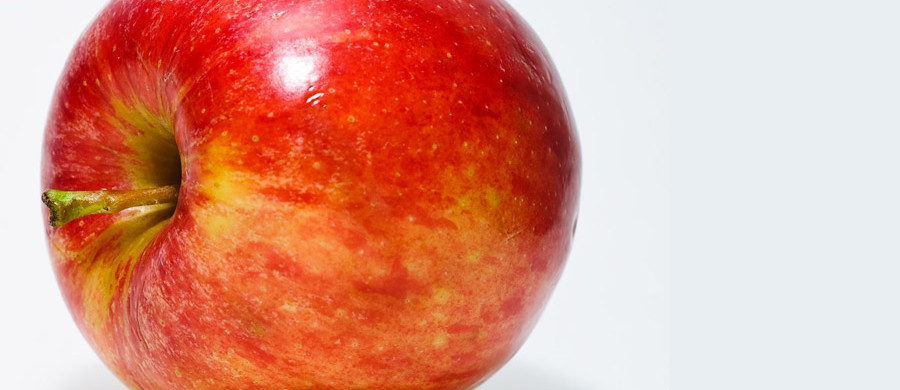Patients will frequently ask me if fiber is important to their health. The best way to answer this is to note that eating more dietary fibers might be associated with better health for three reasons. One, the fibers themselves may have health promoting qualities. Two, the consuming of more dietary fibers may be a marker for consumption of more whole foods that might have health promoting qualities. Three, when one is consuming more dietary fibers, one might be consuming less of the highly processed and refined foods associated with poorer health. I will give you some very basics on the most complex of carbohydrates in the human diet, dietary fibers, in the next few paragraphs.
Dietary fibers have been shown to delay gastric emptying time after a meal and promote the feeling of satiety (feeling full). This results in lower overall caloric consumption at any given meal. For example, studies show that if one consumes a whole apple, rich in dietary fibers, then one feels full much longer and is less likely to consume additional calories that if one consumes and equivalent number of calories from very low fiber apple juice.
The delayed gastric emptying experienced after eating high fiber foods also prolongs the intestinal absorption of digested sugars so there is a more gradual rise in blood glucose levels after eating. This reduces serum insulin levels and is associated with improved health biomarker levels. Additionally, higher fiber foods help remove cholesterol from the body giving lower overall levels of serum cholesterol. Also, fibers increase the water contained in the intestines and reduce constipation and perhaps favorably effect the rates of diverticulosis and colon cancer (this is not clearly proven, but there are many favorable correlative studies). Also, the dietary fibers serve as a desired food source for many of the favorable bacteria that inhabit the human intestine and this may also promote optimized colonic function and reduced colon cancer risks.
There are many carbohydrate sources that are rich in dietary fibers including whole fruits, vegetables, grains, and legumes. Diets with a higher intake of these whole foods are associated with reduced risks of cardiovascular disease, diabetes, colon cancer, and obesity. As noted above, it is unclear if these benefits come from the fibers alone or from the overall favorable nutrient profiles of the foods that are rich in fibers. In reality, both are likely important.
Over the years, I have seen articles in the lay press commenting on science that shows the purported benefits or the lack of benefits of more fibers in the diet. The best frame of reference when thinking about fibers is that their favorable health impacts occur in the context of an entire dietary pattern, not from adding fibers in the form of an isolated dietary supplement. When one consumes whole foods rich in dietary fibers, one benefits form the hundreds of biologically active phytochemicals in the fiber rich whole foods. Fewer than 5% of Americans consume the recommended daily amount of dietary fiber, and I encourage all of my patients to increase their intake of whole food source vegetables, fruits, nuts, beans, and grains while minimizing simple and refined sugars and highly processed foods and juices as part of a well-balanced dietary approach to eating for health.
Dr. Eric Zacharias
Reference: 1-10
1. Jacobs Jr DR, Steffen LM. Nutrients, foods, and dietary patterns as exposures in research: a framework for food synergy. Am J Clin Nutr. 2003;78(3 Suppl):5085-13.
2. Flood-Obbagy JE, Rolls BJ. The effect of fruit in different forms on energy intake and satiety at a meal. Appetite. 2009;52(2):416-22.
3. Dietary Guidelines for American Advisory Committee (DGAC) 2010. U.S. Department of Agriculture. Center for Nutrition Policy and Promotion. Dietary guidelines for Americans, 20 I 0. Accessed I Jan 2011.
4. Slavin JL. Position of the American Dietetic Association: health implications of dietary fiber. J Am Diet Assoc. 2008; I 08( I 0): 1716-3 J.
5. Du H, van der A DL, Boshuizen HC, Forouhi NG, Wareham NJ, Halkjaer J, et al. Dietary fiber and subsequent changes in body weight and waist circumference in European men and women. Am J Clin Nutr. 20 I 0;91 (2):329-36.
6. Tucker LA, Thomas KS. Increasing total fiber intake reduces risk of weight and fat gains in women. J Nutr. 2009; 139(3):576-81.
7. Davis JN, Alexander KE, Ventura EE, Toledo-Corral CM, Goran MI. Inverse relation between dietary fiber intake and visceral adiposity in overweight Latino youth. Am J Clin Nutr. 2009;90(5): 1160-6.
8. Hopping BN, Erber E, Grandinetti A, Verheus M, Kolonel LN, Maskarinec G. Dietary fiber, magnesium, and glycemic load alter risk of type 2 diabetes in a multiethnic cohort in Hawaii. J Nutr. 2010;140(1):68-74.
9. Marriott BP, Olsho L, Hadden L, Connor P. Intake of added sugars and selected nutrients in the United States, National Health and Nutrition Examination Survey (NHANES) 2003-2006. Crit Rev Food Sci Nutr. 20 I 0;50:228-58.
10. Ludwig DS. The glycemic index: physiological mechanisms relating to obesity, diabetes, and cardiovascular disease. JAMA. 2002;287( 18):2414-23.
11.Abete I, Parra D, Crujeiras AB, Goyenechea E, Martinez JA. Specific insulin sensitivity and leptin responses to a nutritional treatment of obesity via a combination of energy restriction and fatty fish intake. J Hum Nutr Diet. 2008;2 I (6):591-600.

